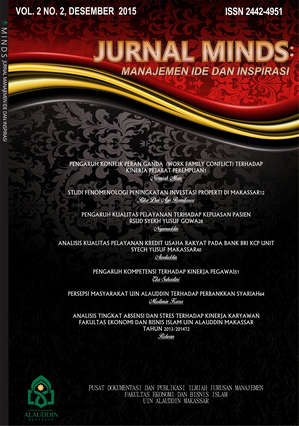Date Log
Competitive Advantage, Entrepreneurial Orientation, Knowledge Sharing, and SMEs’ Performance: Mediation-Moderation Analysis
Corresponding Author(s) : Kadarusman Kadarusman
Jurnal Minds: Manajemen Ide dan Inspirasi,
Vol. 9 No. 1 (2022): June
Abstract
The article investigates the impact of knowledge sharing on company performance with a competitive advantage as a mediating variable and entrepreneurial orientation as a moderating variable. This research uses an RBV theory to determine company performance. Knowledge sharing behavior and entrepreneurial organizations can increase competitive advantage and performance. PLS-SEM technique is employed to analyze the data from 126 Small and Medium Enterprises in the food and beverage entrepreneurs in East Java. This research indicates that knowledge sharing has a favorable and substantial influence on competitive advantage and firm performance. Knowledge sharing positively and significantly affects competitive advantage and performance directly and indirectly. Entrepreneurial orientation does not serve as a moderator.
Keywords
Download Citation
Endnote/Zotero/Mendeley (RIS)BibTeX
